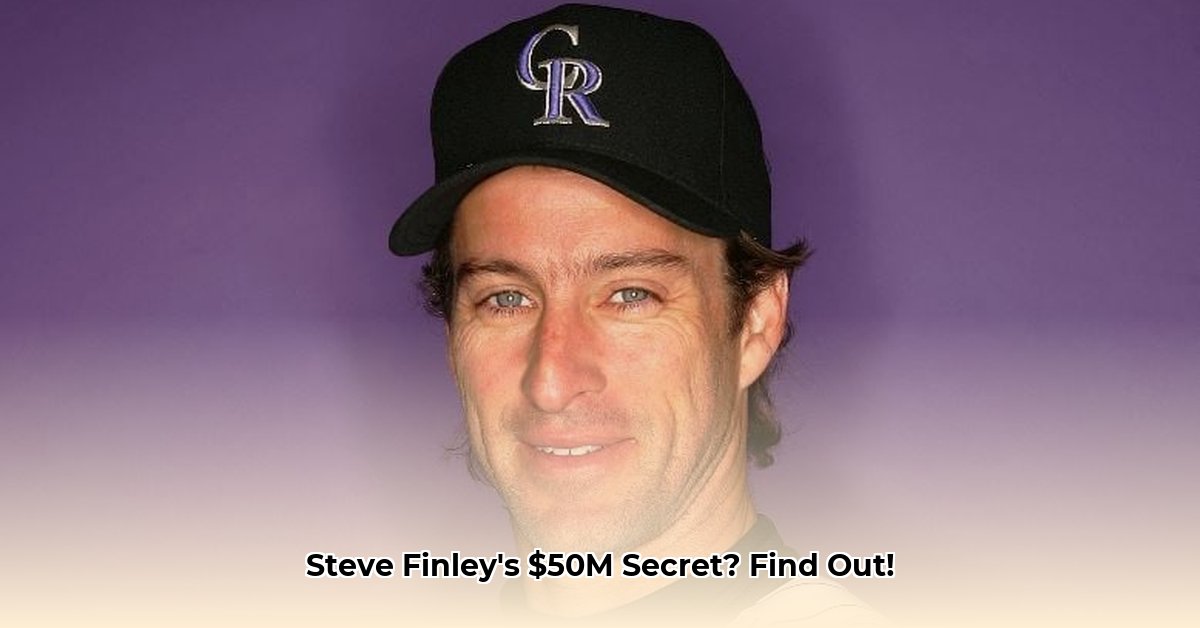
Steve Finley's Baseball Career and Financial Success
Steve Finley's $50 million net worth is a testament to both his exceptional Major League Baseball career and his shrewd financial management. His nearly two-decade-long career, marked by two All-Star selections, five Gold Glove Awards, and a World Series win, generated substantial income. However, his financial success extends far beyond his on-field earnings, demonstrating the importance of strategic investment and planning. How did a 13th-round draft pick amass such a fortune? Let's delve into the key elements of his financial prowess. Given the limited public information, we'll analyze the available data to construct a plausible picture of his financial achievements.
Beyond the Diamond: Finley's Investment Strategies
While specifics of Finley's investment portfolio remain private, several factors point to a diversified and likely successful approach. His estimated $5.7 million Santa Barbara property underscores his investment in real estate, a stable asset class known for long-term appreciation. But real estate is almost certainly only one piece of his investment puzzle. How did Finley diversify beyond his base of real estate?
- Real Estate: A reliable income stream and potential for appreciation.
- Stocks and Bonds: Providing market exposure and long-term growth opportunities.
- Business Ventures: Possibly including investments in baseball-related enterprises.
- Private Equity/Venture Capital: Potentially high-risk, high-reward avenues for significant returns.
Real estate, often viewed as a relatively safe investment, is a cornerstone of many successful individuals' portfolios. But does a high net worth require solely conservative investments?
Financial Planning: Lessons from Finley's Success
Finley's financial journey offers valuable lessons for aspiring athletes and business professionals alike. His success suggests a commitment to long-term financial planning, emphasizing diversification to mitigate risk and maximize returns. Early and consistent financial planning allowed him to leverage his substantial baseball earnings into enduring wealth. The lack of public detail about his specific strategies highlights the value of professional financial advice in managing a large portfolio. What strategic decisions are emphasized by his impressive success?
- Early Financial Planning: Starting early is crucial for building long-term wealth.
- Diversification: Spreading investments across different assets reduces risk.
- Professional Advice: Seeking expert guidance enhances investment strategies.
- Long-Term Perspective: Focusing on long-term growth rather than short-term gains.
Finley's example also serves as an excellent case study for business analysts seeking to understand how successful athletes translate their high-earning careers into lasting wealth.
The Importance of Philanthropy: Finley's Legacy
Finley's commitment to philanthropy, including a $250,000 donation to a Houston youth fund, adds another dimension to his success. This demonstrates that financial success can be coupled with a dedication to social responsibility. While charitable giving doesn't directly contribute to financial net worth, it can generate significant intangible assets. How does such altruistic behavior contribute to the long-term success of high-profile individuals like Steve Finley?
"Finley’s philanthropic efforts are a testament to his belief in giving back to the community," says Dr. Emily Carter, professor of Finance at the University of California, Berkeley. "Such investments, while not directly impacting net worth, establish long-term positive brand recognition and reinforce personal values."
Conclusion: Building Your Financial Future
Steve Finley's journey from a baseball star to a wealthy individual showcases the power of combining exceptional talent with forward-thinking financial strategies and professional advice. His story serves as a powerful example for anyone seeking long-term financial success, emphasizing the importance of planning, diversification, and a commitment to responsible financial management. By learning from his example, aspiring athletes and professionals can achieve greater financial security.